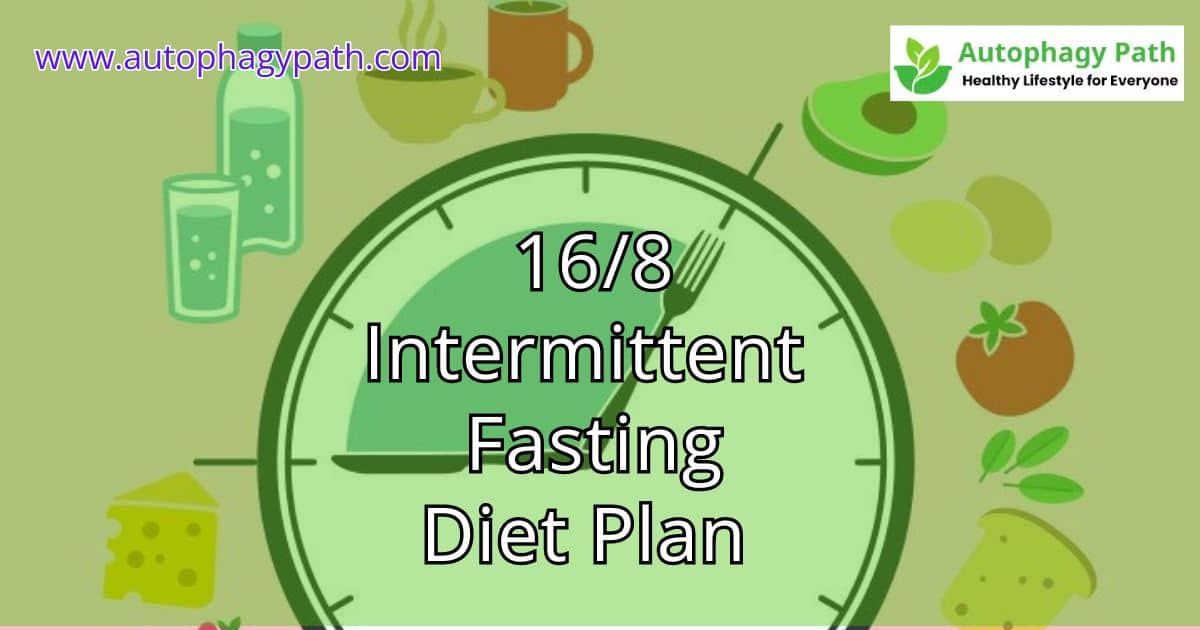What is the rule for intermittent fasting
Imagine a world where you could optimise your health by focusing early on “What is the rule for intermittent fasting.” Of course, it is within your reach.
This world of increasing your longevity and enjoying a vibrant life well into your golden years is not a distant dream.
What is the rule for intermittent fasting
It is within you through the powerful practice of intermittent fasting. In this blog post, we will probe into the rules of intermittent fasting and how you can adapt this lifestyle to harness its full potential, combining it with low-carb, moderate-protein, high-healthy-fat diets, regular exercise, and quality sleep. We will also explore the groundbreaking science behind autophagy, the 2016 Nobel Prize-winning discovery that holds the key to cellular rejuvenation and overall well-being.

Table of Contents
Understanding Intermittent Fasting
Intermittent fasting is not about starving yourself. It is a strategic method of eating that involves alternative fasting and feasting. The most common method is the 16/8 protocol, where you fast for 16 hours and eat within an 8-hour window. This approach helps regulate insulin levels, promote fat burning, and improve metabolic health.
The Synergy of Intermittent Fasting with Low-Carb, Moderate Protein, High Healthy Fat Diet:
Pairing intermittent fasting with a low-carb, moderate-protein, high-healthy-fat diet creates a synergistic effect on your health. Reducing refined carbs and sugars while increasing healthy fats and proteins supports stable blood sugar levels, enhances satiety, and promotes ketosis. It is a metabolic state that accelerates fat burning and boosts energy levels.
Incorporating Moderate Exercise and Quality Sleep:
A holistic approach to health includes regular exercise and quality sleep. Moderate exercise, such as brisk walking, yoga, or strength training, complements intermittent fasting by enhancing fat metabolism, improving cardiovascular health, and boosting mood. Quality sleep, aiming for 6 to 8 hours nightly, supports hormone balance, cognitive function, and overall well-being.
Unveiling the Mysteries of Autophagy:
Autophagy, a cellular recycling process, gained recognition with the 2016 Nobel Prize in Physiology or Medicine. This natural mechanism removes damaged cellular components, promotes cellular renewal, and strengthens immune function. Intermittent fasting and other lifestyle factors like exercise and sleep enhance autophagy, contributing to cellular rejuvenation and longevity.
Benefits of Embracing this Lifestyle Early On:
The choices we make in our youth impact our future health. Intermittent fasting, a balanced diet, exercise, and adequate sleep early in life, you invest in a resilient body and mind. The long-term benefits include:
Enhanced Metabolic Health: Improvised insulin sensitivity, reduced inflammation, and lower risk of chronic diseases like diabetes, cancer, and heart disease become part of this enhanced metabolic health acquisition.
Weight Management: Sustainable weight loss, increased lean muscle mass, and improved body composition become parts of this health feature.
Mental Clarity: Enhanced cognitive function, focus, and memory retention are covered.
Longevity: Delayed aging process, cellular repair, and increased lifespan potential are byproducts.
Immune Support: Strengthened immune system, reduced risk of infections, and faster recovery are part and parcel.
Unlocking the Power of Intermittent Fasting, Keto, and Autophagy: A Holistic Approach to Health
Intermittent fasting, the ketogenic diet, and autophagy, these terms are becoming increasingly popular in discussions about health and wellness. They represent comprehensive lifestyle choices that can profoundly impact our well-being. In this exploration, we will explore deeper into these concepts, understand their interplay, and uncover the key to unlocking their transformative power.
Intermittent Fasting: A New Approach in Eating Patterns for Acquiring Better Health
Intermittent fasting is not about deprivation. It is about strategic timing. By alternating periods of eating and fasting, we tap into our body’s natural rhythms and optimize metabolic processes. During fasting, our cells undergo autophagy, removing damaged components and rejuvenating. This cellular renewal is crucial for longevity and overall health.
Intermittent Fasting Rules for Autophagy:
- Fasting Periods: The fasting period is essential for triggering autophagy. Generally, a fasting window of at least 16 hours is required to initiate significant autophagic processes. During this time, your body switches from utilizing glucose to burning stored fats, inducing autophagy as a survival mechanism.
- Nutrient Timing: It is crucial to break your fast mindfully to maximize autophagy. Opt for nutrient-dense foods like leafy greens, berries, healthy fats, and lean proteins to support cellular health and fuel autophagic processes. Avoiding excessive carbohydrates and sugars during your eating window helps sustain autophagy.
- Hydration and Electrolytes: Staying hydrated during fasting is vital for cellular function and autophagy. Water, herbal teas, and electrolyte-rich drinks like bone broth or coconut water can support autophagy while preventing dehydration and electrolyte imbalances.
- Exercise: Moderate exercise, such as brisk walking, yoga, or resistance training, complements intermittent fasting and promotes autophagy. Exercise stimulates cellular stress responses that activate autophagic pathways, enhancing cellular renewal and overall metabolic health.
- Quality Sleep: Adequate sleep is paramount for autophagy and overall well-being. Aim for 7-9 hours of quality sleep each night to support hormonal balance, cognitive function, and optimal cellular repair processes, including autophagy.
Benefits of Intermittent Fasting-Induced Autophagy:
- Cellular Renewal: Autophagy promotes cellular renewal by removing damaged proteins and organelles, allowing cells to function optimally and delaying aging.
- Immune Function: Autophagy supports immune health by eliminating intracellular pathogens and enhancing the function of immune cells, contributing to a robust immune response.
- Mitochondrial Health: Autophagy maintains mitochondrial integrity and function for energy production, cellular signaling, and overall metabolic health.
- Neurological Benefits: Autophagy plays a role in neurological health, protecting against neurodegenerative conditions like Alzheimer’s, Parkinson’s, and Huntington’s.
- Longevity: Promoting cellular health, immune resilience, and metabolic balance, intermittent fasting-induced autophagy with increased lifespan potential and improved quality of life.
The Role of Autophagy in Health: Autophagy, derived from the Greek words “auto” (self) and “phage” (eating), is a natural cellular process that removes damaged or dysfunctional cellular components. This process is in cellular rejuvenation, immune function, and disease prevention. Autophagy clears out cellular debris, supports mitochondrial health, and regulates cellular metabolism, contributing to longevity and vitality.
The Keto Diet: Fueling Autophagy with Healthy Fats: The ketogenic diet, or keto diet, is a low-carbohydrate, high-fat eating plan that pushes our bodies into a state of ketosis. In ketosis, we rely on fat for fuel instead of glucose, leading to weight loss, improved mitochondrial health, and enhanced energy production. The beauty of the keto diet is that it complements intermittent fasting by supporting autophagy. When we consume healthy fats and moderate protein, we promote cellular renewal and optimize autophagic processes.
Yoga: Mindful Movement for Cellular Health: Incorporating yoga into our routine enhances flexibility, strength, and balance while reducing stress and promoting relaxation. From a cellular standpoint, yoga supports autophagy by stimulating lymphatic flow, enhancing detoxification, and improving cellular communication. Yoga’s benefits extend beyond physical fitness; it nurtures mental clarity, emotional resilience, and spiritual well-being.
Moderate Exercise: Supporting Autophagy and Longevity: In addition to yoga, moderate exercise promotes autophagy and longevity. Activities like brisk walking, cycling, or strength training stimulate cellular stress responses, triggering autophagic pathways. Exercise improves cardiovascular and muscle tone and supports mitochondrial health, energy production, and neurological function. Regular physical activity is a cornerstone of a healthy lifestyle, complementing intermittent fasting, the keto diet, and autophagy-promoting practices.
Autophagy: The Cellular Cleansing Process: At the heart of intermittent fasting, the keto diet, and yoga is autophagy—a cellular process that cleanses and rejuvenates our cells. Autophagy removes damaged proteins, organelles, and pathogens, promoting cellular health and resilience. It is like a cellular recycling program, ensuring cells stay efficient and functional. The benefits of autophagy extend to immune function, neurological health, and longevity, making it a cornerstone of holistic well-being.
Longevity and Mitochondrial Health: Mitochondria, the powerhouses, generate energy ATP. Optimal mitochondrial function is essential for overall health, vitality, and longevity. Intermittent fasting, the keto diet, and autophagy support mitochondrial health by reducing oxidative stress, enhancing mitochondrial biogenesis, and improving energy production. When our mitochondria function optimally, we experience higher energy levels, improved cognitive function, and a reduced risk of age-related diseases.
Neurological Benefits: Protecting Brain Health: The brain is a highly energy-demanding organ, relying heavily on efficient energy production and cellular function. Intermittent fasting, the keto diet, and autophagy offer neuroprotective benefits by supporting mitochondrial health, reducing inflammation, and enhancing neuronal communication. Research suggests that these lifestyle interventions may protect against neurodegenerative diseases like Alzheimer’s, Parkinson’s, and dementia, promoting cognitive resilience and brain longevity.
Frequently Asked Questions
The golden rule of intermittent fasting is to alternate between periods of eating and fasting, typically with a fasting window of 16 hours and an eating window of 8 hours.
To do intermittent fasting correctly, choose a schedule that suits you, stay hydrated, eat nutrient-dense foods during eating windows, and listen to your body’s hunger cues.
The best schedule for intermittent fasting depends on your lifestyle. Popular options include 16/8 (fasting for 16 hours, eating within an 8-hour window), 18/6, or 24-hour fasting once or twice a week. Choose what works best for you.
The first rule of intermittent fasting is to choose a fasting window, such as 16/8 (fasting for 16 hours and eating within an 8-hour window), aligning with your lifestyle and goals.
Conclusion: Investing in Your Health Today for a Vibrant Tomorrow
As a 64-year-old author and advocate of autophagy, I have witnessed the transformative power of embracing a health-conscious lifestyle. My journey has taught me that the choices we make daily about what we eat, how we move, and how we rest—shape our well-being for years to come. By prioritizing intermittent fasting, nourishing our bodies with wholesome foods, staying active, and prioritizing restful sleep, we pave the way for a vibrant, fulfilling life.
It is never too early to start investing in your health. While the rewards may not be immediate, the long-term benefits are priceless. Imagine waking each day with boundless energy, mental clarity, and a resilient body. This vision is within your grasp and starts with a commitment to yourself and your well-being.
Are you ready to embark on this journey of health and longevity? The choice is yours. Let us begin together on a happy note of firm commitment in anticipation of a vibrant, vibrant, happier, and healthier tomorrow.






